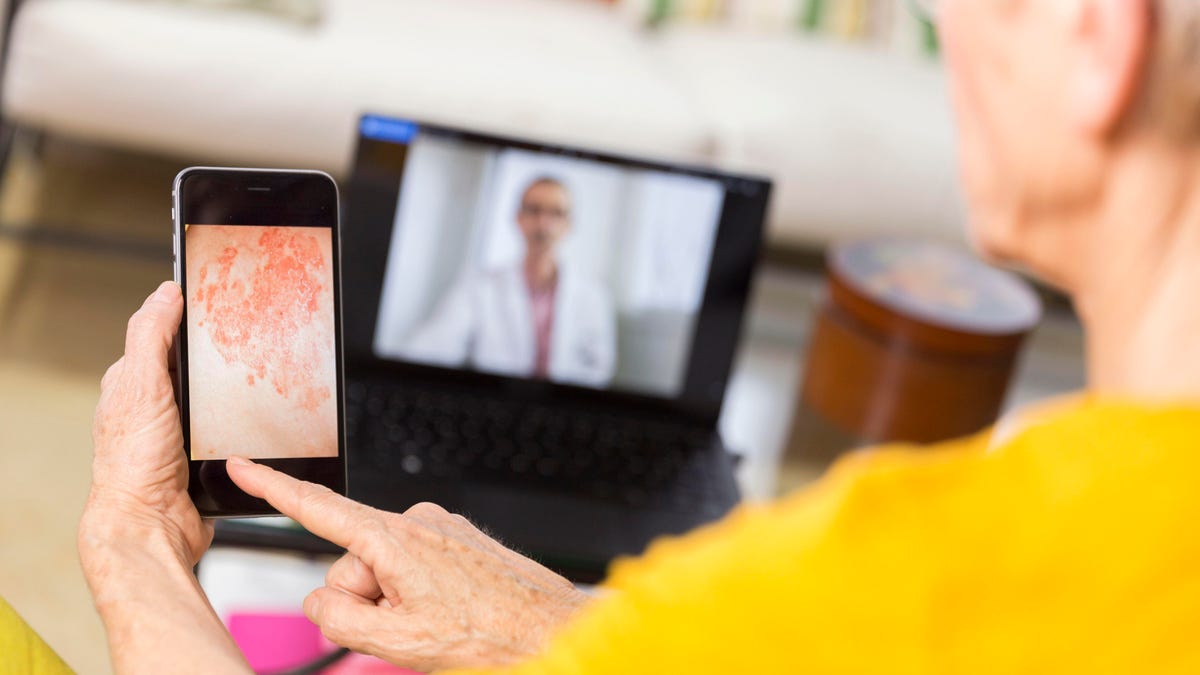COVID-19 has pushed health care online -- and 5G will make it better
Qualcomm President Cristiano Amon talks up mobile's role in helping combat the novel coronavirus.

The novel coronavirus has changed a lot about regular life, from grocery shopping to getting haircuts. One of the biggest areas that's been impacted is health care. As people avoid going to hospitals and doctors' offices, medicine has moved online. We're "visiting" our physicians on video calls and chatting with medical bots and avoiding seeing doctors in person.
Qualcomm President Cristiano Amon joined CNET to talk about mobile's role in the rise of telemedicine. While many things are possible with the 4G and Wi-Fi technology we have today, everything gets supercharged when 5G is broadly available, he said. That makes it easier for doctors to connect with and remotely monitor patients in real time.
"This whole thing has been accelerated because of the pandemic," Amon said. "Teleheath is not something that we expect to see five, 10 years from now. We're seeing it today, and people want to figure out how to make it better today."
Qualcomm President Cristiano Amon has been one of the mobile industry's biggest advocates for 5G.
In 2018, 7 million patients used some sort of a telemedicine service in the US, and that number is only expected to rise. Over half of US hospitals use some sort of telemedicine, and it's in every state, with more than 200 telemedicine networks in the US alone.In March, the US Federal Communications Commission earmarked $200 million to help health organizations roll out telehealth technology to combat COVID-19. The FCC said the services would be used to directly help COVID-19 patients as well as provide care to patients with other conditions who might be at risk of contracting the coronavirus if they had to visit a health care provider in person.
5G could become the backbone for some of those technologies. It promises to significantly boost the speed, coverage and responsiveness of wireless networks. This new generation of wireless tech can run 10 to 100 times faster than a typical cellular connection today, and it'll also boost how fast a device will connect to the network with speeds as quick as a millisecond to start your download or upload. It's the most significant advance in mobile network technology since the introduction of 4G a decade ago, and it's being rolled out across the globe this year.
When it comes to health, 5G is critical for sharing information in real time, and it's important for things like using portable ultrasound or stroke detection machines in peoples' homes. Anything with sophisticated imaging and the ability to send real-time data to doctors could benefit from a network's high bandwidth and responsiveness. And then there's all the data that could be collected from sensors all over your body and home.
In South Korea, often used as the example for how to quickly handle a pandemic, first responders in ICUs are using 360-degree cameras that are connected over 5G networks to stream data in real time, Amon said. That information can be sent to doctors on a review panel in different locations to be sure the right treatment is being used. It's only possible with 5G because of the technology's low latency, high bandwidth and fast upload speeds.
"We expect to see some of those technologies being also in trial with different countries, including the United States," Amon said. "Basically, all of the use cases that we've been talking about [for] the promise of 5G, I think this pandemic brought this whole sense of urgency, and those are accelerating."
Amon has a lot more to say about mobile's role in health care. Listen to the interview for the full story.
Now What is a video interview and panel series with industry leaders, celebrities and influencers covering the major changes and trends impacting business and how consumers connect in the "new normal" 2020 world and beyond. There will always be change in our world, there will always be technology helping us navigate that change, and we'll always discuss surprising twists, turns and potential solutions.

